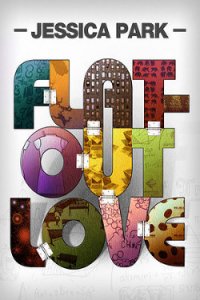Tell No One - Coben Harlan (лучшие книги .txt) 📗
Tyrese's cell phone sounded something hip-hop.
"Got to take this, Doc. Bidness."
"Right," I said again.
I do get angry sometimes. Who wouldn't? But through that haze, there are real children here. They hurt. I don't claim that all children are wonderful. They are not. I sometimes treat ones that I know – know – will amount to no good. But children are, if nothing else, helpless. They are weak and defenseless. Believe me, I've seen examples that would alter your definition of human beings. So I concentrate on the children.
I was supposed to work only until noon, but to make up for my FBI detour, I saw patients until three. Naturally, I'd been thinking about the interrogation all day. Those pictures of Elizabeth, battered and defeated, kept popping through my brain like the most grotesque sort of strobe light.
Who would know about those pictures?
The answer, when I took the time to think about it, was somewhat obvious. I leaned forward and picked up the phone. I hadn't dialed this number in years, but I still remembered it.
"Schayes Photography," a woman answered.
"Hi, Rebecca."
"Son of a gun. How are you, Beck?"
"Good. How about yourself?"
"Not bad. Busy as all hell."
"You work too hard."
"Not anymore. I got married last year."
"I know. I'm sorry I couldn't make it."
"Bull."
"Yeah. But congrats anyway."
"So what's up?"
"I need to ask you a question," I said.
"Uh-huh."
"About the car accident."
I hear a tinny echo. Then silence.
"Do you remember the car accident? The one before Elizabeth was killed?"
Rebecca Schayes, my wife's closest friend, did not reply.
I cleared my throat. "Who was driving?"
"What?" She did not say that into the phone. "Okay, hold on." Then back at me: "Look, Beck, something just came up here. Can I call you back in a little while?"
"Rebecca-"
But the line was dead.
Here is the truth about tragedy: It's good for the soul.
The fact is, I'm a better person because of the deaths. If every cloud has a silver lining, this one is admittedly pretty flimsy. But there it is. That doesn't mean it's worth it or an even trade or anything like that, but I know I'm a better man than I used to be. I have a finer sense of what's important. I have a keener understanding of people's pain.
There was a time – it's laughable now – when I used to worry about what clubs I belonged to, what car I drove, what college degree I stuck on my wall – all that status crap. I wanted to be a surgeon because that wowed people. I wanted to impress so-called friends. I wanted to be a big man.
Like I said, laughable.
Some might argue that my self-improvement is simply a question of maturity. In part, true. And much of the change is due to the fact I am now on my own. Elizabeth and I were a couple, a single entity. She was so good that I could afford to be not so good, as though her goodness raised us both, was a cosmic equalizer.
Still, death is a great teacher. It's just too harsh.
I wish I could tell you that through the tragedy I mined some undiscovered, life-altering absolute that I could pass on to you. I didn't. The cliches apply – people are what count, life is precious, materialism is overrated, the little things matter, live in the moment – and I can repeat them to you ad nauseam. You might listen, but you won't internalize. Tragedy hammers it home. Tragedy etches it onto your soul. You might not be happier. But you will be better.
What makes this all the more ironic is that I've often wished that Elizabeth could see me now. Much as I'd like to, I don't believe the dead watch over us or any similar comfort-fantasy we sell ourselves. I believe the dead are gone for good. But I can't help but think: Perhaps now I am worthy of her.
A more religious man might wonder if that is why she's returned.
Rebecca Schayes was a leading freelance photographer. Her work appeared in all the usual glossies, though strangely enough, she specialized in men. Professional athletes who agreed to appear on the cover of, for example, GQ often requested her to do the shoot. Rebecca liked to joke that she had a knack for male bodies due to "a lifetime of intense study."
I found her studio on West Thirty-second Street, not far from Penn Station. The building was a butt-ugly semi-warehouse that reeked from the Central Park horse and buggies housed on the ground floor. I skipped the freight elevator and took the stairs.
Rebecca was hurrying down the corridor. Trailing her, a gaunt, black-clad assistant with reedy arms and pencil-sketch facial hair dragged two aluminum suitcases. Rebecca still had the unruly sabra locks, her fiery hair curling angrily and flowing freely. Her eyes were wide apart and green, and if she'd changed in the past eight years, I couldn't see it.
She barely broke stride when she saw me.
"It's a bad time, Beck."
"Tough," I said.
"I got a shoot. Can we do this later?"
"No.
She stopped, whispered something to the sulking black-clad assistant, and said, "Okay, follow me."
Her studio had high ceilings and cement walls painted white. There were lots of lighting umbrellas and black screens and extension cords snaking everywhere. Rebecca fiddled with a film cartridge and pretended to be busy.
"Tell me about the car accident," I said.
"I don't get this, Beck." She opened a canister, put it down, put the top back on, then opened it again. "We've barely spoken in, what, eight years? All of a sudden you get all obsessive about an old car accident?"
I crossed my arms and waited.
"Why, Beck? After all this time. Why do you want to know?"
"Tell me."
She kept her eyes averted. The unruly hair fell over half her face, but she didn't bother pushing it back. "I miss her," she said. "And I miss you too."
I didn't reply to that.
"I called," she said.
"I know."
"I tried to stay in touch. I wanted to be there."
"I'm sorry," I said. And I was. Rebecca had been Elizabeth's best friend. They'd shared an apartment near Washington Square Park before we got married. I should have returned her calls or invited her over or made some kind of effort. But I didn't.
Grief can be inordinately selfish.
"Elizabeth told me that you two were in a minor car crash," I went on. "It was her fault, she said. She took her eyes off the road. Is that true?"
"What possible difference does it make now?"
"It makes a difference."
"How?"
"What are you afraid of, Rebecca?"
Now it was her time for silence.
"Was there an accident or not?"
Her shoulders slumped as though something internal had been severed. She took a few deep breaths and kept her face down. "I don't know."
"What do you mean, you don't know?"
"She told me it was a car accident too."
"But you weren't there?"
"No. You were out of town, Beck. I came home one night, and Elizabeth was there. She was bruised up. I asked her what happened. She told me she'd been in a car accident and if anyone asked, we'd been in my car."
"If anyone asked?"
Rebecca finally looked up. "I think she meant you, Beck."
I tried to take this in. "So what really happened?"
"She wouldn't say."
"Did you take her to a doctor?"
"She wouldn't let me." Rebecca gave me a strange look. "I still don't get it. Why are you asking me about this now?"
Tell no one.
"I'm just trying to get a little closure."
She nodded, but she didn't believe me. Neither one of us was a particularly adept liar.
"Did you take any pictures of her?" I asked.
"Pictures?"
"Of her injuries. After the accident."
"God, no. Why would I do that?"
An awfully good question. I sat there and thought about it. I don't know how long.




